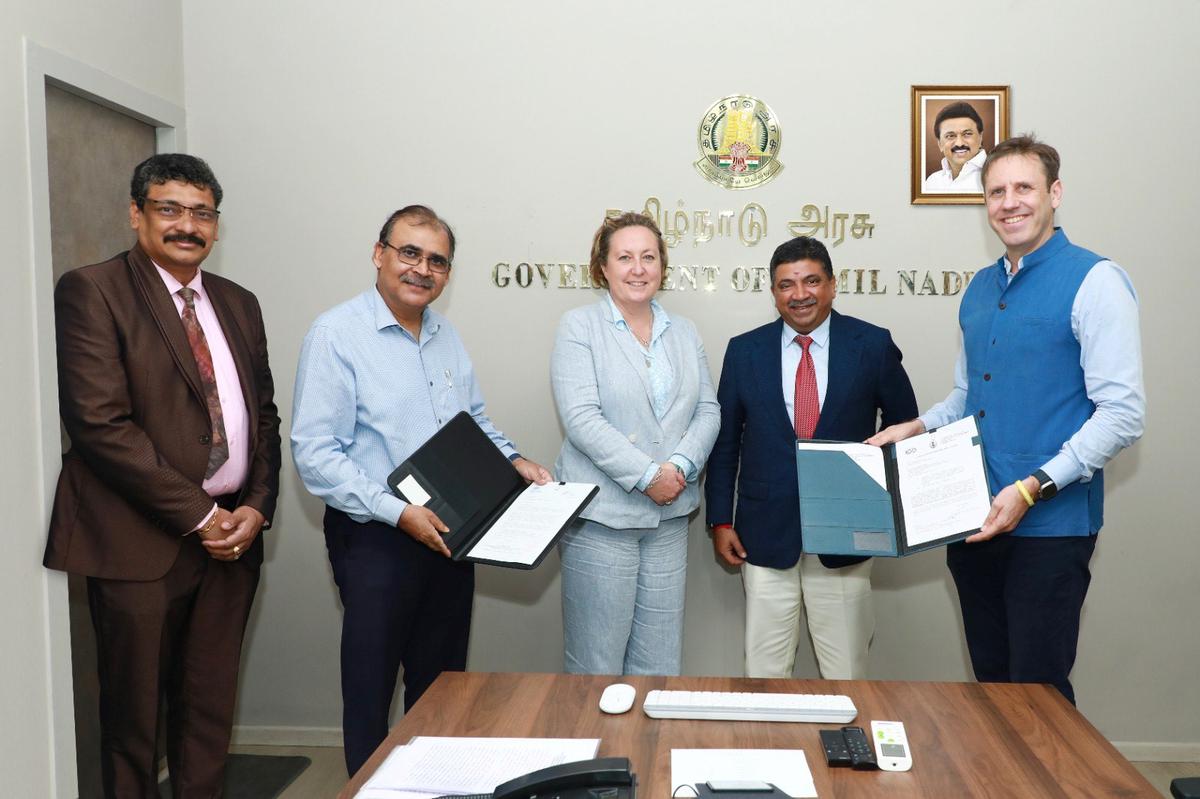SMART TECH PROJECT FOR RESOURCE MANAGEMENT

- The U.K. and Tamil Nadu are working together on a smart technology project for sustainable water, waste and resource management.
- The project is titled as ‘Smart district administration using loT technologies for better quality of life.’
- The ‘Smart district’ project aims to address global sustainability challenges by deploying sensors across the district.
- It gathers data in real-time on water and waste management and environmental quality.
- The sensors will analyse data patterns for efficient resource allocation.
TILAPIA PARVOVIRUS

- Tilapia parvovirus (TiPV) is affecting farm-bred tilapia.
- It is a freshwater fish species.
- TiPV is causing a huge mortality rate.
- It has been reported for the first time in India at ponds in Walajah in Ranipet district.
- TiPV-positive was found through PCR [Polymerase Chain Reaction]. This DNA virus caused mortality ranging from 30% to 50% in the farm.
- Mozambique tilapia was considered as “a poor-man’s fish.”
- It was introduced to Indian fresh waterbodies in the 1950s.
- It is called Jilabi in Tamil.
- It is Capable of surviving in low-oxygen levels.
- The fish has turned invasive across the country.
- Nile tilapia was introduced in the 1970s.
- It is bigger and cultured on a larger scale.
- It available in the market at ₹100 to ₹150 per kg.
- In 2022, the tilapia production was estimated to be about 70,000 tonnes, of which 30,000 tonnes come from aquaculture.
- The TiPV was first reported in China in 2019 and in Thailand in 2021.
- India is the third country to report its occurrence.
VIZHINJAM PORT
Why is in news?
- Vizhinjam port welcomes its first vessel.
- About Vizhinjam port
- The Vizhinjam International Seaport is located in Thiruvananthapuram.
- It is a multi-purpose port.
- It is also the first automated port in India.
- It is the sole port in the country to be located adjacent to an international shipping.
- It just 10 nautical miles from the international shipping route connecting Europe, the Persian Gulf, and the Far East.
ESTIVATION
- The organisms respond to unfavourable conditions by suspending their activities and go into a period of deep sleep. Summer sleep is called aestivation.
- It is a biological phenomenon whereby the animal enters a long period of dormancy, or inactivity, in response to high temperature or maybe even drought-like conditions.
- It is a survival strategy that helps the animal conserve energy and water in a difficult time.
- During estivation, the animal often seeks shelter in a cool underground burrow, crevice or cocoon.
- It will remain in a state of reduced metabolic activity, which in turn reduces the rate at which the body consumes energy.
- Estivation can also be a way to avoid desiccation (extreme dryness of the skin).
- It also lower the risk of being preyed on by a predator.
For example, the West African lungfish
- (Protopterusannectens) burrows into the mud of a drying water body and secretes a cocoon of mucus around itself during a drought.
- Desert tortoises (Gopherusagassizii) dig burrows and retreat into them in hot summer months.
- Many land snails seal themselves in their shells with a mucous plug, and stay inactive until the conditions outside improve.
WORLD FOOD DAY – OCTOBER 16

- World Food Day is observed every year on October 16.
- The event commemorates the establishment of United Nations Food and Agriculture Organization in 1945.
- The aim of the day is to raise awareness of the issues like poverty and hunger and the adoptive measures for solution of these issues.
- The theme of World Food Day 2023 is ‘Water is life, water is food. Leave no one behind’.

